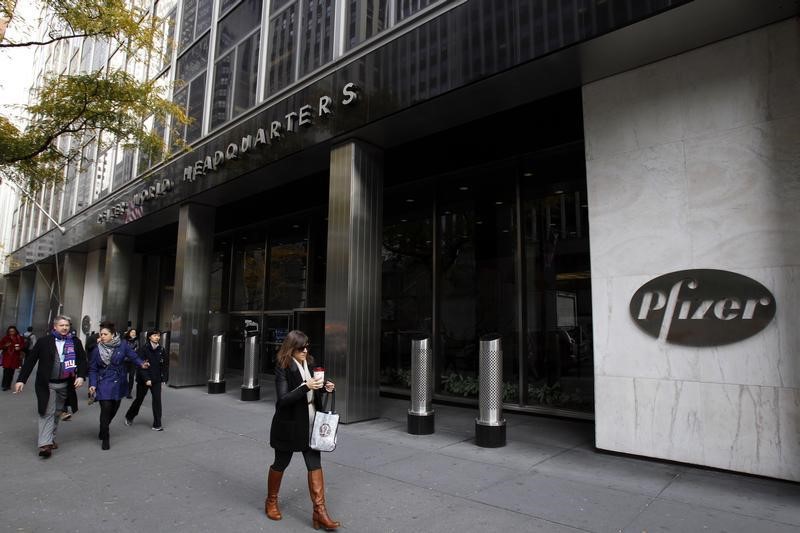This post was originally published on this site
https://i-invdn-com.investing.com/trkd-images/LYNXMPEI1B00V_L.jpg
The National Medical Products Administration said Paxlovid is approved to treat adults who have mild to moderate COVID-19 and high risk of progressing to a severe condition. Further study on the drug needed to be conducted and submitted to the authority, it said.
It is not immediately clear if China is already in talks with Pfizer to procure the pill.
“This is an important milestone in our fight against COVID-19,” a Pfizer representative said in a statement, without providing information about procurement.
The approval is a boost to Pfizer which expects $22 billion in 2022 sales of the treatment.
Pfizer executives have said the company is in active discussions with over 100 countries about Paxlovid, and has the capacity to provide 120 million courses if needed.
While a number of vaccines are available worldwide to help prevent infection and serious illness, including one made by Pfizer, there are limited treatment options for people infected with COVID-19.
Pfizer in December said final trial results showed its treatment reduced the chance of hospitalisation or death by 89% in COVID-19 patients at risk of severe illness given the treatment within three days of the onset of symptoms, and by 88% when given within five days of onset.
The United States is paying around $530 for each course of Paxlovid and $700 for each course of rival COVID-19 pill molnupiravir developed by Merck & Co.
China has kept daily number of new COVID-19 patients with confirmed symptoms to below 250, and sometimes fewer than 10, in the past year.
The number is small for its 1.4 billion population and by global standards, thanks to China’s approach of quickly containing any local flare-ups as soon as possible and its weeks-long quarantine requirement for most travellers arriving from abroad.
China has yet to approve any COVID-19 vaccines developed by foreign drugmakers but has vaccinated 87.1% of its entire population by Feb. 7 using several domestically developed shots.

